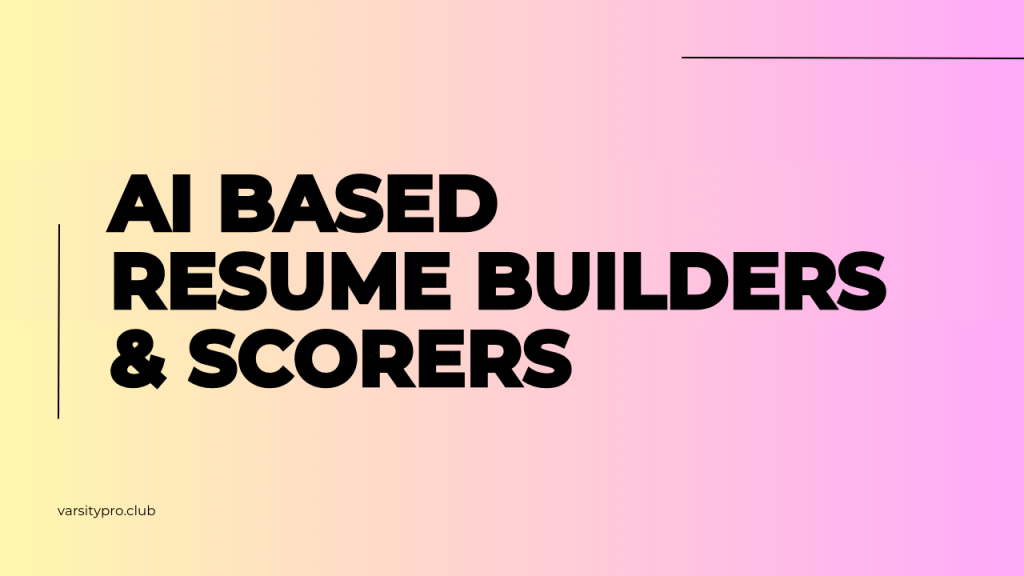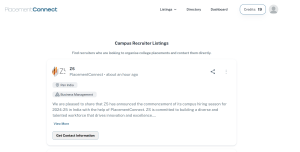Embarking on a career in civil engineering can be an exciting journey, filled with opportunities to shape the world around us. As a student in an university’s civil engineering branch, your resume plays a pivotal role in securing that all-important first job. The realm of civil engineering is diverse and ever-evolving, and your resume should reflect your passion, skills, and dedication to the field. In this article, we’ll delve into some invaluable tips to craft a winning resume, with a special focus on the impact of internships, certifications, projects, and specific aspects of the civil engineering branch.
The Power of Internships
Internships are like the stepping stones that bridge the gap between classroom learning and real-world applications. The Indian civil engineering sector values practical experience greatly, and internships offer a unique opportunity to gain insights into the industry. When showcasing internships on your resume, focus on:
- Relevance: Prioritize internships that align with your specialization within civil engineering. Whether it’s structural engineering, transportation, environmental, or geotechnical, tailor your resume to highlight how your internship experience directly relates to the job you’re applying for.
- Tasks and Achievements: Describe the tasks you undertook during your internship and any noteworthy accomplishments. Did you contribute to a project’s completion? Were you involved in problem-solving or data analysis? Highlighting these experiences demonstrates your ability to apply theoretical knowledge to practical scenarios.
Also Read: Soft Skills: How Important They Are And How To Build Them
Certifications that Stand Out
Certifications are a fantastic way to bolster your resume and showcase your commitment to professional development. In the civil engineering field, certifications hold significant weight and can set you apart from other applicants. Some certifications to consider include:
- AutoCAD and Revit: Proficiency in these software programs is often considered a standard for civil engineering roles. A certification in either or both can signal your competence in drafting and modeling.
- STAAD.Pro or ETABS: For those interested in structural engineering, certifications in structural analysis software can be a game-changer.
- Project Management Professional (PMP): Demonstrating your understanding of project management principles can be advantageous, especially if you were involved in project-based internships or coursework.
- Health and Safety Certifications: Certifications in safety practices, such as IOSH or NEBOSH, exhibit your commitment to maintaining a safe work environment.
Read More
Showcasing Projects with Impact
In the realm of civil engineering, hands-on projects showcase your ability to apply theoretical concepts to real-world challenges. When presenting projects on your resume:
- Choose Relevant Projects: Highlight projects that align with the job you’re seeking. Whether it’s designing a bridge, analyzing a drainage system, or optimizing traffic flow, relevance is key.
- Explain Your Role: Detail your contribution to each project. Did you lead a team? Were you responsible for a particular aspect? Emphasize your problem-solving skills, technical expertise, and leadership abilities.
- Quantify Achievements: Whenever possible, quantify the impact of your projects. Did your solution reduce costs? Increase efficiency? Enhance safety? Numbers add depth to your accomplishments.
Tailoring to the Civil Engineering Branch
As a civil engineering student, your resume should highlight certain technical and soft skills specific to the field:
- Technical Skills: Include proficiency in software like AutoCAD, MATLAB, SAP2000, and GIS tools. Mention your familiarity with relevant codes and standards, such as IS 456 for concrete structures.
- Soft Skills: Communication, teamwork, problem-solving, and attention to detail are essential. Highlight instances where you effectively communicated complex ideas, collaborated on group projects, or resolved engineering challenges.
- Academic Projects: Discuss academic projects that showcase your understanding of core civil engineering concepts. Whether it’s designing a water treatment system or analyzing soil mechanics, these projects reflect your grasp of fundamental principles.
Also Read
Final Thoughts
Crafting a compelling resume is a crucial step in securing your first job in the civil engineering sector. Internships, certifications, and projects all play pivotal roles in showcasing your skills and dedication. Remember to tailor your resume to the specific job you’re applying for, emphasizing the aspects that align with the position’s requirements. With a well-crafted resume that highlights your experiences and expertise, you’ll be well on your way to making a lasting impression and kickstarting your civil engineering career.





